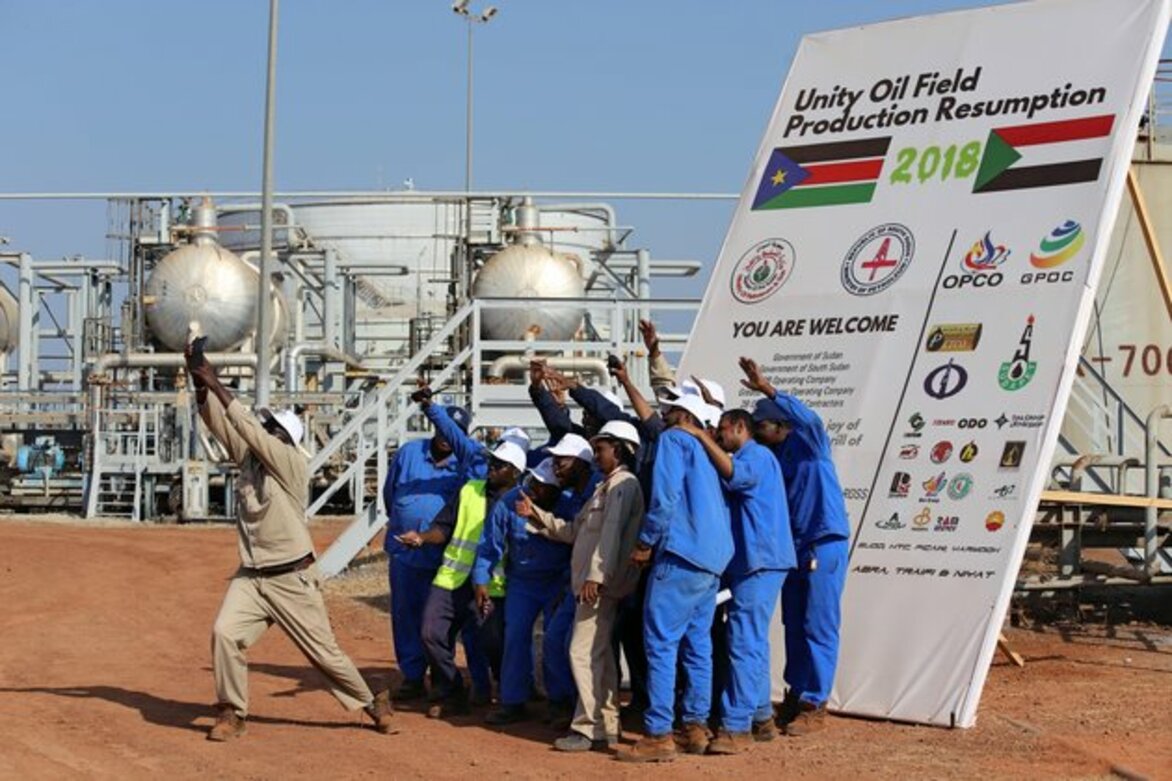South Sudan's Oil Industry Remains Dependent on Foreign Help
Voice of America
07 Jul 2021

Ten years after becoming the world's newest nation, South Sudan is struggling with how to advance, fund and staff a potentially lucrative oil sector that could provide a much-needed economic foothold in the impoverished country.
After South Sudan's independence, most of what used to be Sudan's largest oil fields became located in South Sudanese territory. The new nation has lacked the expertise and money, though, to keep much of the oil pumping, and it has become largely dependent on foreign help.
South Sudan ranks third in oil reserves in Sub-Saharan Africa with roughly 3.5 billion barrels produced annually. Still, 90% of the gas and oil reserves are untapped, and the government recently said it will begin a licensing bidding process to foreign investors to increase production and revenues.
Oil fields were destroyed during the civil war and industry figures show the sector went from producing 350,000 barrels per day to 150,000 barrels.
South Sudan has largely employed Chinese and Malaysian engineers to produce and export the country's crude to Sudan, where it is processed and sent on to the international market.
The South Sudan government says it lost more than $4 billion to some 500 oil companies in unpaid taxes since 2011, and the government has enacted measures to recover the money.
South Sudan Petroleum Minister Kang Puot Chol insists his country's reliance on foreign manpower is hindering South Sudan's path toward full independence.
"Economic freedom is the most difficult," Chol told VOA's South Sudan in Focus. "I will be so happy to see the South Sudanization of the oil sector, and we cannot do it without manpower."
When South Sudan took control of the oil fields a decade ago, only a few local engineers worked in them, said Awuou Daniel Chuang, South Sudan's undersecretary for the petroleum ministry.
The government has worked steadily to increase employment of locals, he said.
"Over the years, we were able to accumulate knowledge and experience and today we have a good number of engineers, although most of them are fresh and have not enough experience," Chuang said,
Chuang said there are enough South Sudanese engineers employed in the oil sector.
But a recent study by The Sudd Institute, a Juba-based independent research group, said a significant number of South Sudanese working for oil companies are not qualified for the jobs.

"We don't have a system that identifies people on the basis of competency," said Nhial Tiitmamer, the institute's director of environment and natural resources. "The data we have will show you somebody who is not supposed to work in that position doing that position."
Only 26% of the national workforce employed in the oil and gas sector are engineers, geologists, and scientists, according to the institute study, leaving a wide gap between local and foreign expertise.
Some South Sudanese petroleum engineers complain that despite being qualified for jobs at oil rigs and oil exploration sites, they are not offered employment at production sites run by oil consortiums operating in the country.
John Mayom Akech, 34, who studied petroleum engineering at Uganda's Makerere University, said he has applied for jobs in South Sudan's oil industry for four years with no success.
"It is surprising that the most needed skills in the sector are being ignored and most of my colleagues are loitering in the streets as we talk," he said.
Mayom said when he registered for petroleum-related courses at Makerere University, he was fairly confident that he would secure a well-paying job in oil-rich South Sudan after completing his studies.
But nepotism and tribalism dominate decisions on who gets hired in South Sudan, he said.
"In South Sudan there is this saying that it is not all about what you know," he said. "So, it is very difficult if you have the qualification and you don't have the connection."
The government's Chuang said companies often recruit people with whom they are familiar.
"If you have somebody who is working in the oil field or in the oil company, he may help you to get employed," he said. "I think these things are there, nobody can deny them. But still, whenever recruitment is done, interviews are done, and the best are selected based on that."
The Sudd Institutes' Tiitmamer said authorities should stop giving preferential treatment in the oil sector and start hiring the most qualified personnel. He says the country would benefit if it could manage its oil and gas sector without foreign hands.
"It is costing us a lot of money to pay foreigners," said Tiitmamer.
Chol Garang Reu, 33, is a South Sudanese chemical engineer, who works at the Crude Oil Central Processing Facility in El-Jebeleen near the Sudanese capital, Khartoum.
Reu is one of six South Sudanese citizens who received scholarships from the Malaysian oil company Petronas in 2011 to study several courses related to crude oil engineering at a Malaysian university. The scholarships were intended to help build the capacity of South Sudanese so that eventually a homegrown workforce can take over the production and export of South Sudan's crude.
"We are ready and South Sudanese engineers are ready," he said of leaving Sudan for his homeland.
